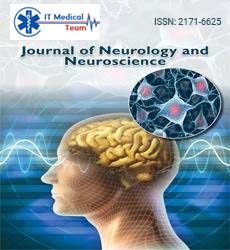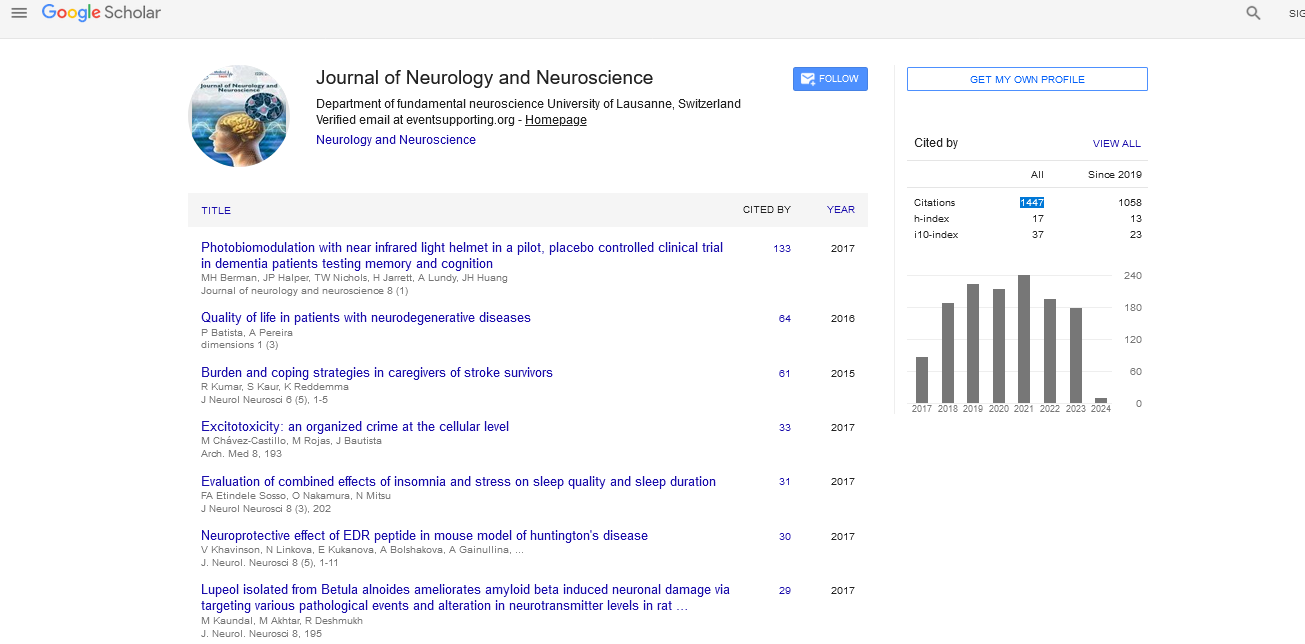Opinion - (2024) Volume 15, Issue 2
A feasibility study on children's self-regulation of attention in a virtual classroom environment
Gudjer Fatimha*
Department of Medicinal and Health Products Sciences, University of Pisa, Pisa, Italy
*Correspondence:
Gudjer Fatimha, Department of Medicinal and Health Products Sciences, University of Pisa, Pisa,
Italy,
Email:
Received: 01-Apr-2024, Manuscript No. ipjnn-24-14916;
Editor assigned: 03-Apr-2024, Pre QC No. P-14916;
Reviewed: 15-Apr-2024, QC No. Q-14916;
Revised: 22-Apr-2024, Manuscript No. R-14916;
Published:
29-Apr-2024
Introduction
The global shift toward virtual learning environments,
accelerated by the COVID-19 pandemic, has significantly
transformed traditional educational settings. With this
transformation, new challenges and opportunities have emerged,
particularly concerning children's ability to self-regulate their
attention in virtual classrooms. Self-regulation of attention is
a critical skill for academic success, involving the capacity to
maintain focus, manage distractions, and persist in tasks. This
feasibility study explores the potential for children to develop and
apply self-regulation strategies within virtual learning contexts,
aiming to understand the efficacy, challenges, and supports
necessary for effective implementation. Self-regulation refers
to the processes by which individuals control their thoughts,
emotions, and behaviors to achieve goals. In educational contexts,
self-regulation encompasses setting goals, monitoring progress,
and adjusting behaviors to optimize learning outcomes. Research
has consistently demonstrated that students with strong selfregulation
skills tend to achieve higher academic performance,
exhibit better problem-solving abilities, and show greater
resilience in the face of challenges [1-3].
Virtual Learning Environments (VLEs) provide a platform
for delivering educational content and facilitating interactions
between students and instructors through digital means. These
environments offer flexibility and accessibility but also present
unique challenges, such as increased distractions and the need
for higher levels of self-motivation and self-regulation. Several
studies have highlighted the difficulties students face in virtual
classrooms, particularly regarding attention management. The
absence of physical presence and immediate supervision can
lead to decreased engagement and increased susceptibility to
distractions. Younger students, in particular, may struggle more
with these challenges due to their developmental stage and
limited experience with self-regulation. This study employs a
mixed-methods approach, combining quantitative and qualitative
data to provide a comprehensive understanding of children's selfregulation
in virtual classrooms. The study is conducted in three
phases: a preliminary survey, an intervention phase, and a postintervention
evaluation. Participants are drawn from a diverse
population of elementary school students, aged 8-12, enrolled
in virtual learning programs. A sample size of 100 students is
targeted to ensure a representative and statistically significant
analysis. A preliminary survey is conducted to gather baseline
data on students' current self-regulation skills, learning habits,
and challenges faced in virtual classrooms. The survey includes
standardized questionnaires such as the Children's Behavior
Questionnaire (CBQ) and teacher and parent reports. Based
on the preliminary survey findings, an intervention program is
designed to enhance self-regulation skills.
Description
The preliminary survey reveals significant variability in students' self-regulation skills and challenges. Common issues
identified include difficulty maintaining focus, managing time
effectively, and dealing with distractions from home environments.
Teachers and parents report a need for additional support and
resources to help students adapt to virtual learning. Improved
self-regulation skills. Students show enhanced ability to set goals,
monitor their progress, and manage distractions effectively the
use of gamified learning platforms and attention-tracking tools
helps maintain student interest and participation. The study
underscores the potential of targeted interventions to improve
self-regulation skills among children in virtual classrooms.
Strategies such as goal setting and mindfulness exercises are
particularly effective in helping students manage their attention
and stay focused [4].
Technological tools play a crucial role in supporting selfregulation.
Attention-tracking software provides real-time
feedback to students, helping them become more aware of their
focus levels and adjust their behaviors accordingly. Gamified
learning platforms make the learning process more engaging
and motivating for students. Despite the positive outcomes,
several challenges remain. The variability in students' home
environments and access to technology can affect the effectiveness
of the intervention. Additionally, the need for ongoing support
and reinforcement of self-regulation skills highlights the
importance of a collaborative effort between teachers, parents,
and students. This feasibility study provides valuable insights into
the potential for enhancing children's self-regulation of attention
in virtual classrooms. The findings suggest that with appropriate
strategies and technological supports, students can develop the
skills necessary to thrive in virtual learning environments. Future
research should continue to explore the long-term impacts of
these interventions and identify additional factors that can
support successful self-regulation in diverse educational contexts [5].
Conclusion
Schools should incorporate regular training sessions on selfregulation
strategies to help students develop these critical skills.
Schools and educators should utilize attention-tracking software
and gamified learning platforms to enhance engagement and
support self-regulation. Continuous feedback and support from
teachers and parents are essential to reinforce self-regulation skills
and address any challenges that arise. Efforts should be made to
ensure all students have access to the necessary technology and
resources to participate fully in virtual learning environments.
Examining how self-regulation strategies can be tailored to meet
the needs of students from diverse backgrounds and with varying
levels of access to technology. Exploring the roles of teachers
and parents in supporting self-regulation and identifying best
practices for collaboration. The transition to virtual learning
environments presents both challenges and opportunities for
developing children's self-regulation skills. This feasibility study
demonstrates that with targeted interventions and appropriate
technological supports, students can enhance their ability to selfregulate
their attention, leading to improved engagement and
academic outcomes. By integrating these strategies into virtual
learning curricula and providing ongoing support, educators
can help students navigate the complexities of virtual learning
and achieve their full potential. Future research and continuous
improvement of these interventions will be essential to address
the diverse needs of students and ensure equitable access to
quality education in the digital age.
Acknowledgement
None.
Conflict of Interest
None.
References
- Sadeghi H, Shabani Y, Pakniyat A, Karimian K, et al. Road crashes in adults with attention deficit hyperactivity disorder and risky driving behavior. Iran J Psychiatry. 2020; 15(2):105.
Google Scholar, Crossref, Indexed at
- Thomas R, Sanders S, Doust J, Beller E, et al. Prevalence of attention-deficit/hyperactivity disorder: A systematic review and meta-analysis. Pediatrics. 2015; 135(4):e994-1001.
Google Scholar, Crossref, Indexed at
- Mochrie KD Whited MC, Cellucci T, Freeman T, Corson AT. ADHD, depression, and substance abuse risk among beginning college students. J Am Coll Health. 2020; 68(1):6-10.
Google Scholar, Crossref, Indexed at
- Bink M, van Nieuwenhuizen C, Popma A, Bongers IL, et al. Behavioral effects of neurofeedback in adolescents with adhd: A randomized controlled trial. Eur Child Adolesc Psychiatry. 2015; 24:1035-1048.
Google Scholar, Crossref, Indexed at
- Jorge J, Grouiller F, Ipek Ö, Stoermer R, et al. Simultaneous eeg–fmri at ultra-high field: Artifact prevention and safety assessment. NeuroImage. 2015; 105:132-144.
Google Scholar, Crossref, Indexed at





